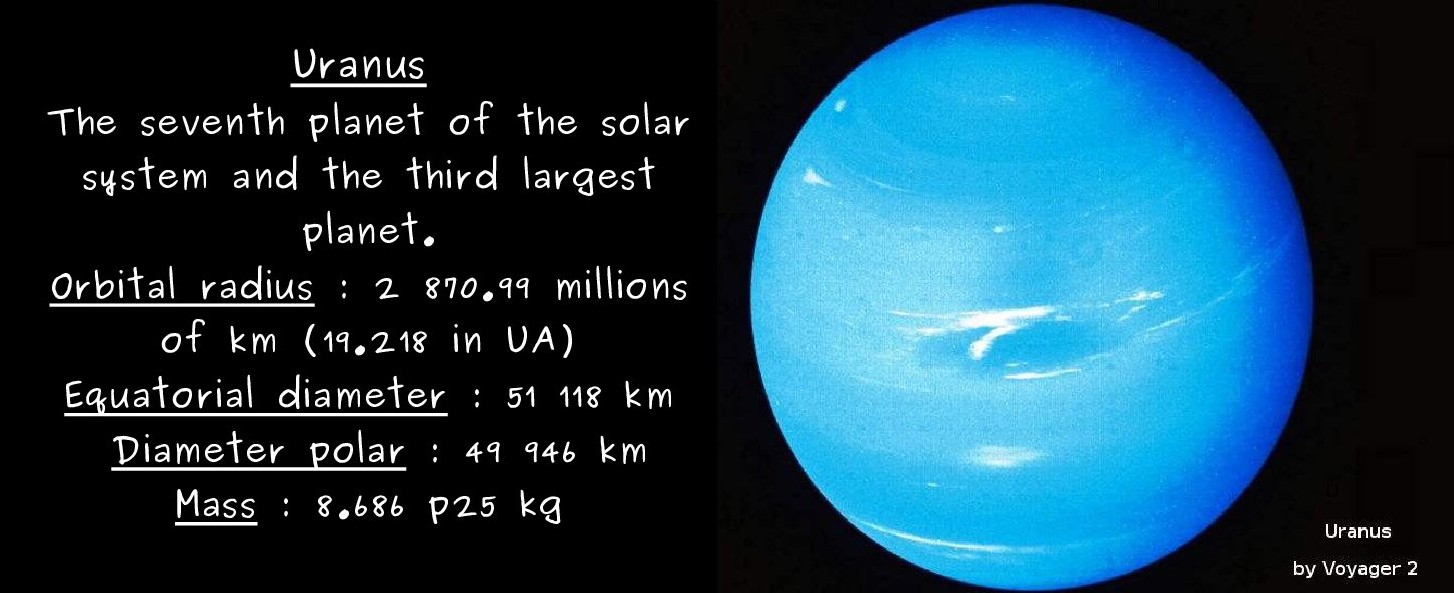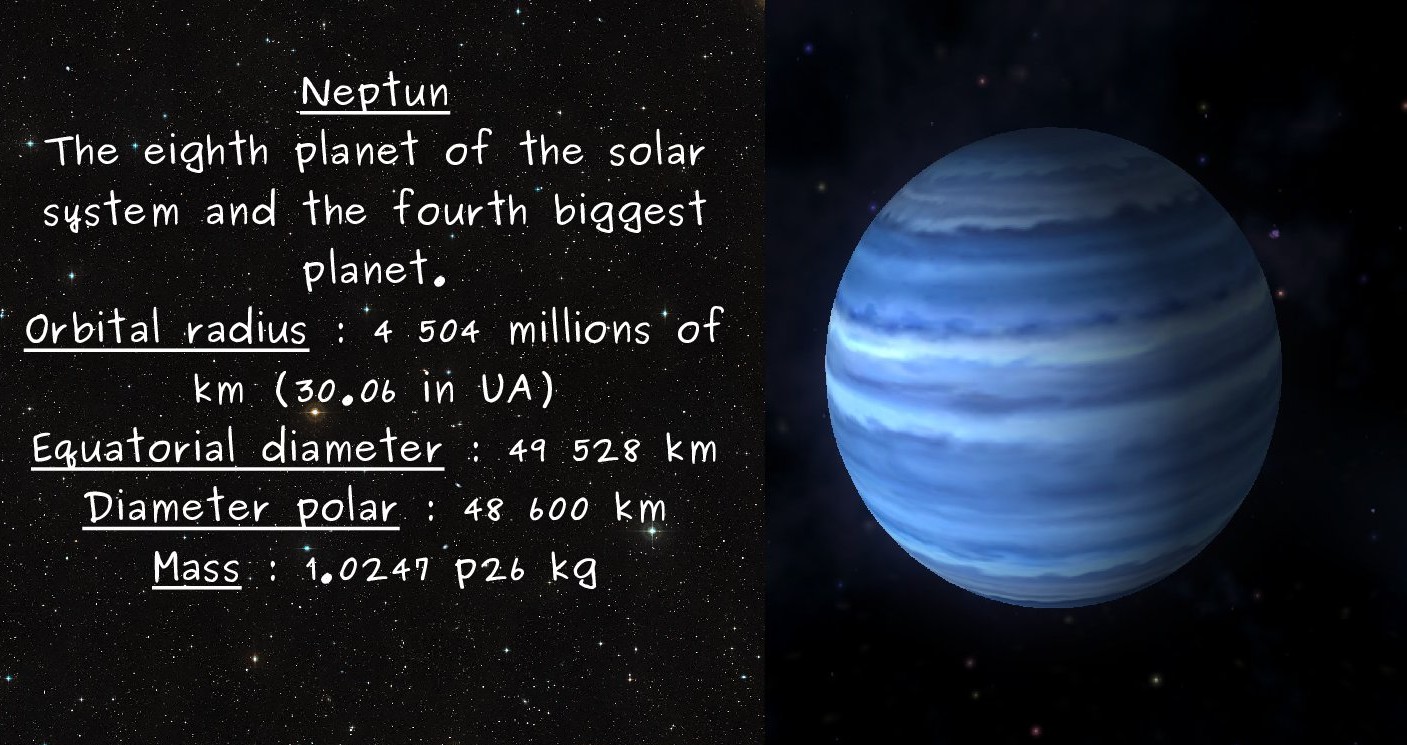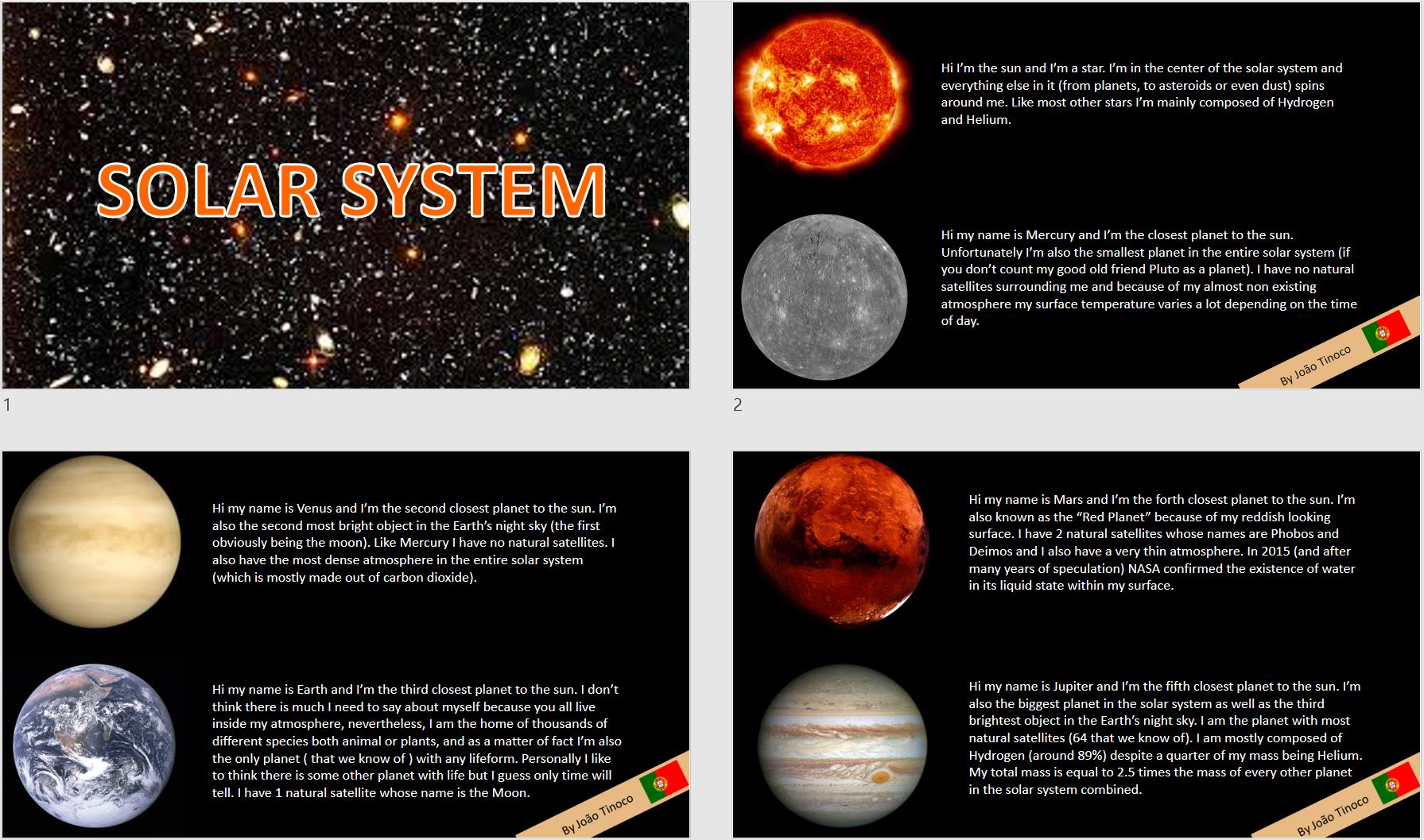

The solar system is composed of all the planets and their satellites as well as other objects which turn around the Sun.
It consists of two classes of planets : The Inner planets (terresterial planets) and The Outer planets (giant planets).
Let us begin with :
The events of our galaxy ...
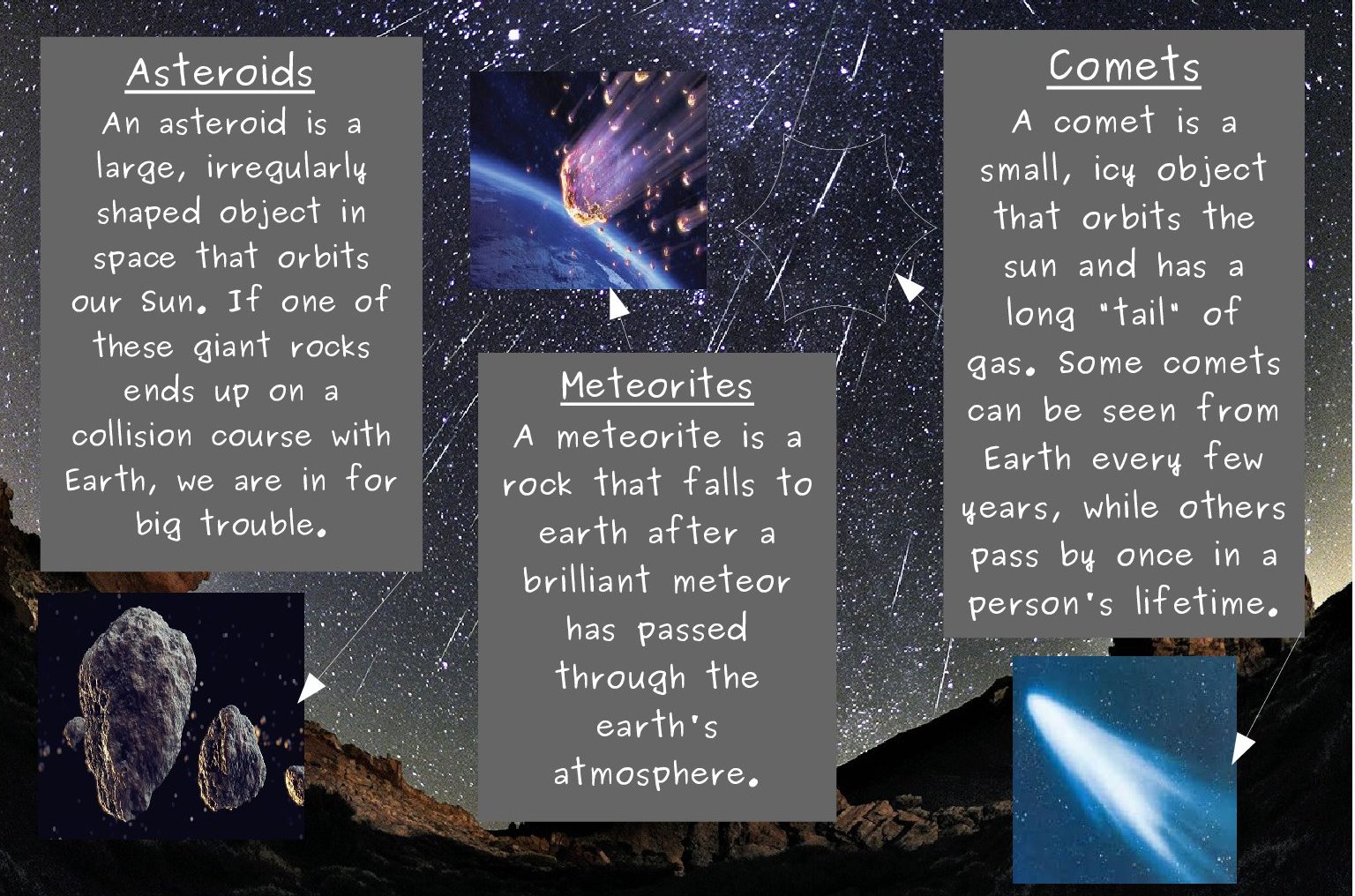
... The Sun, our star !
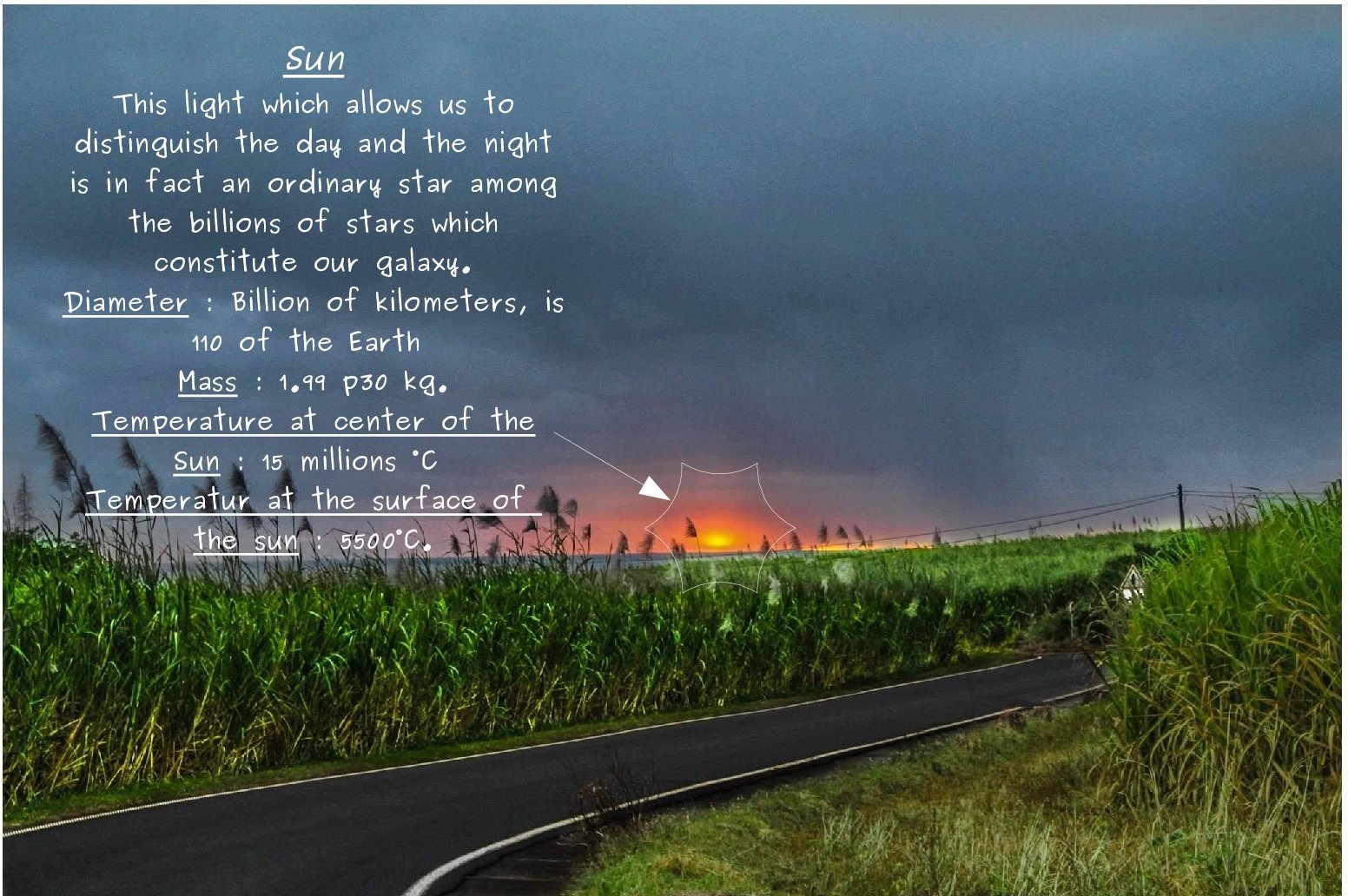
Now we are going to see both categories of planets compose our Solar System.
I. The Inner Planets
| Distance to the Sun |
Near |
| Size |
Small |
| Composition |
Extern : Solid ; silicates rocks, metal and iron
Intern : Fluid ; core, crust and mantle
|
| Temperature (°c) |
more than - 70° |
| Density (g.cm p3) |
4 to 5.5
|
In the class of the Inner planets , we have :
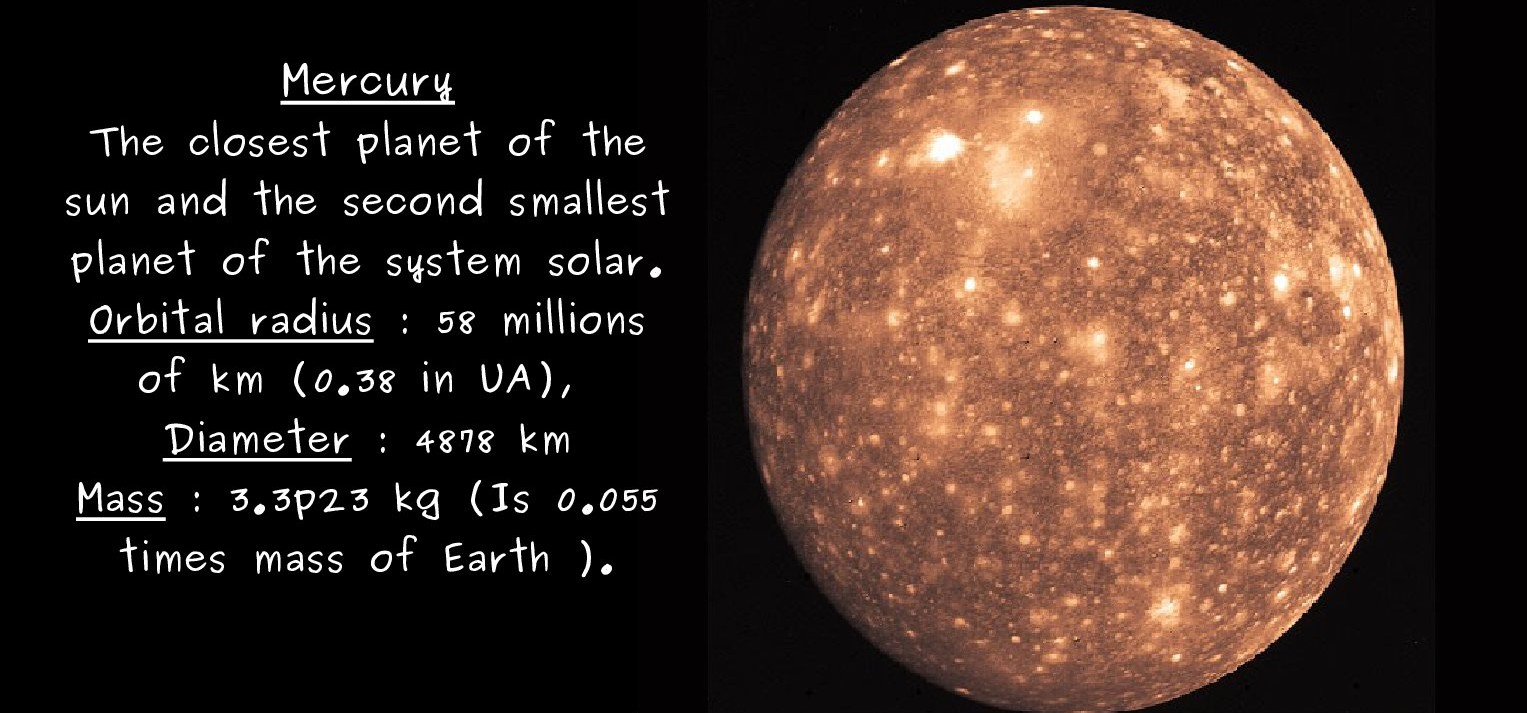
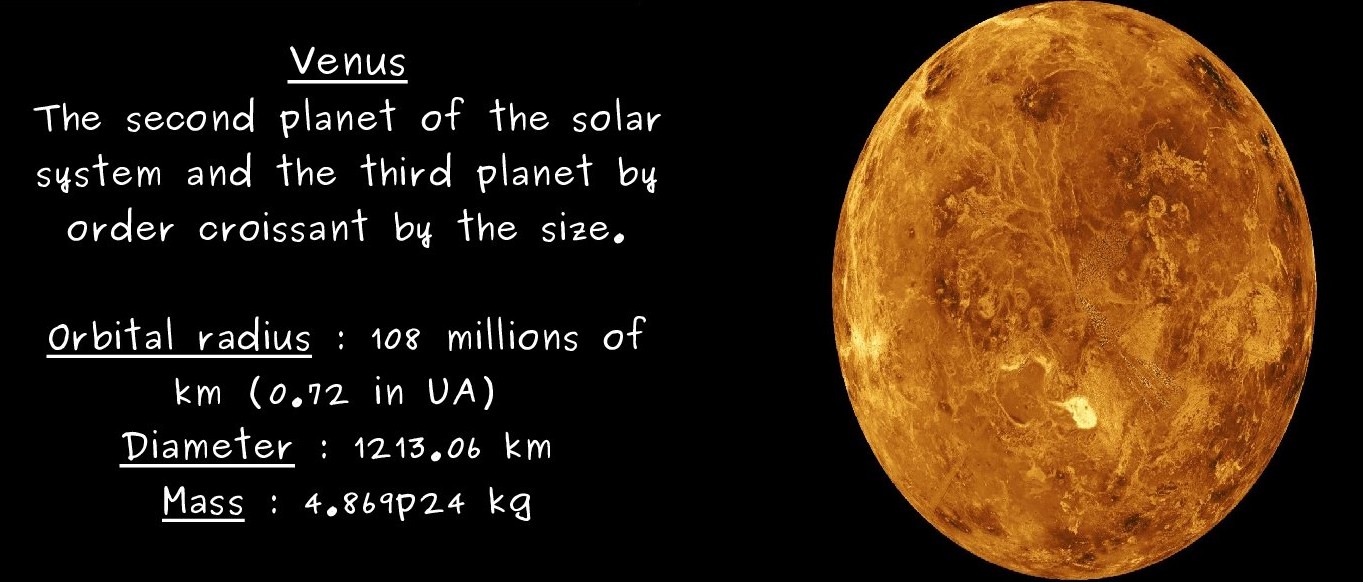
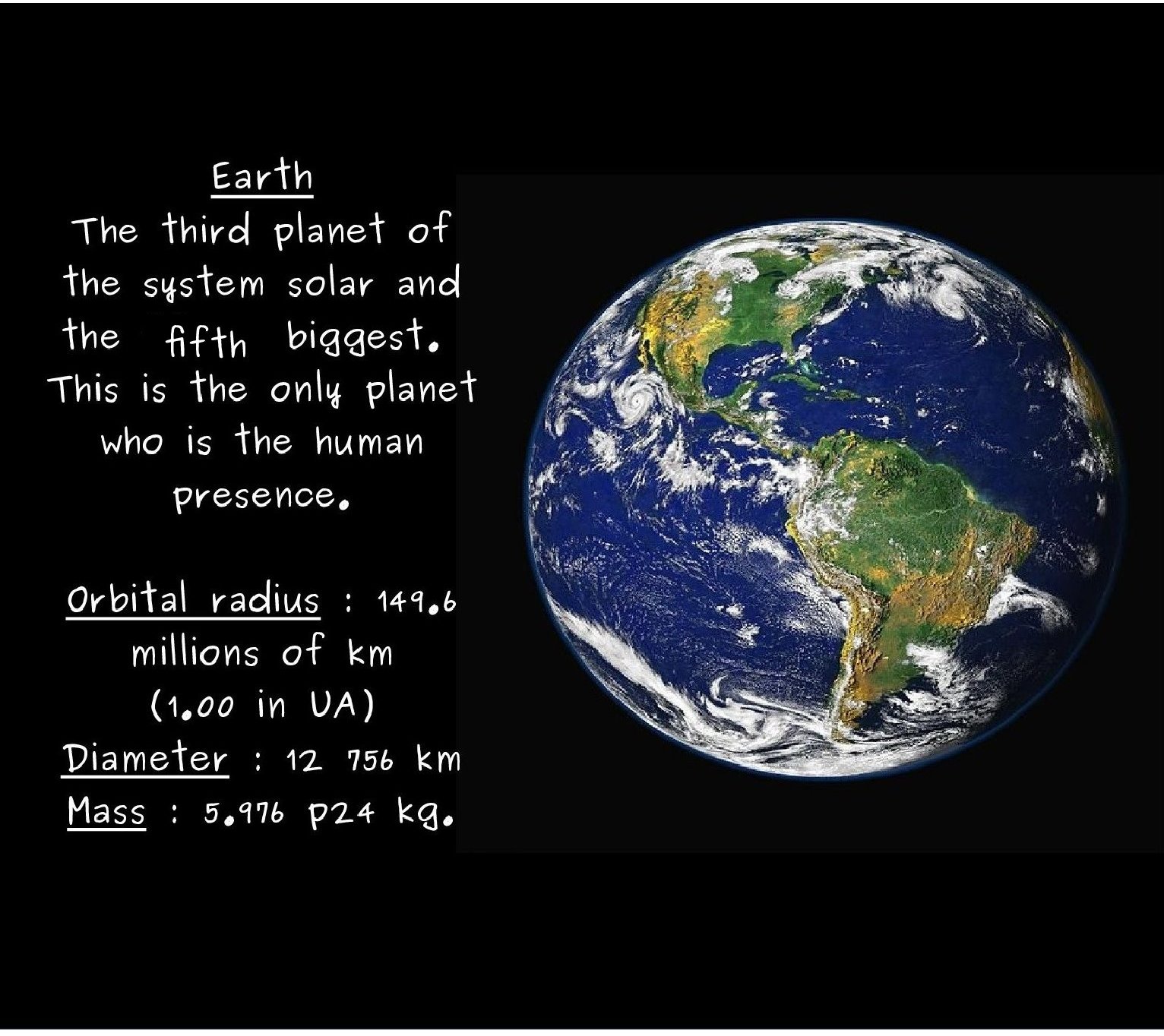
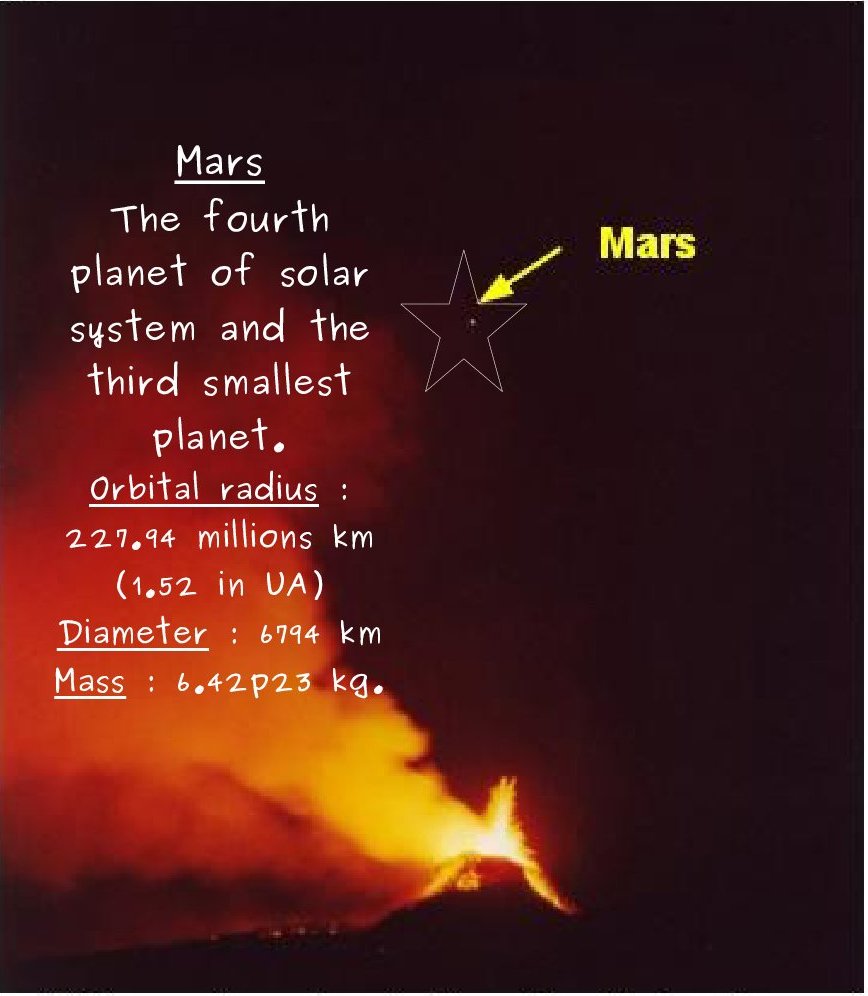
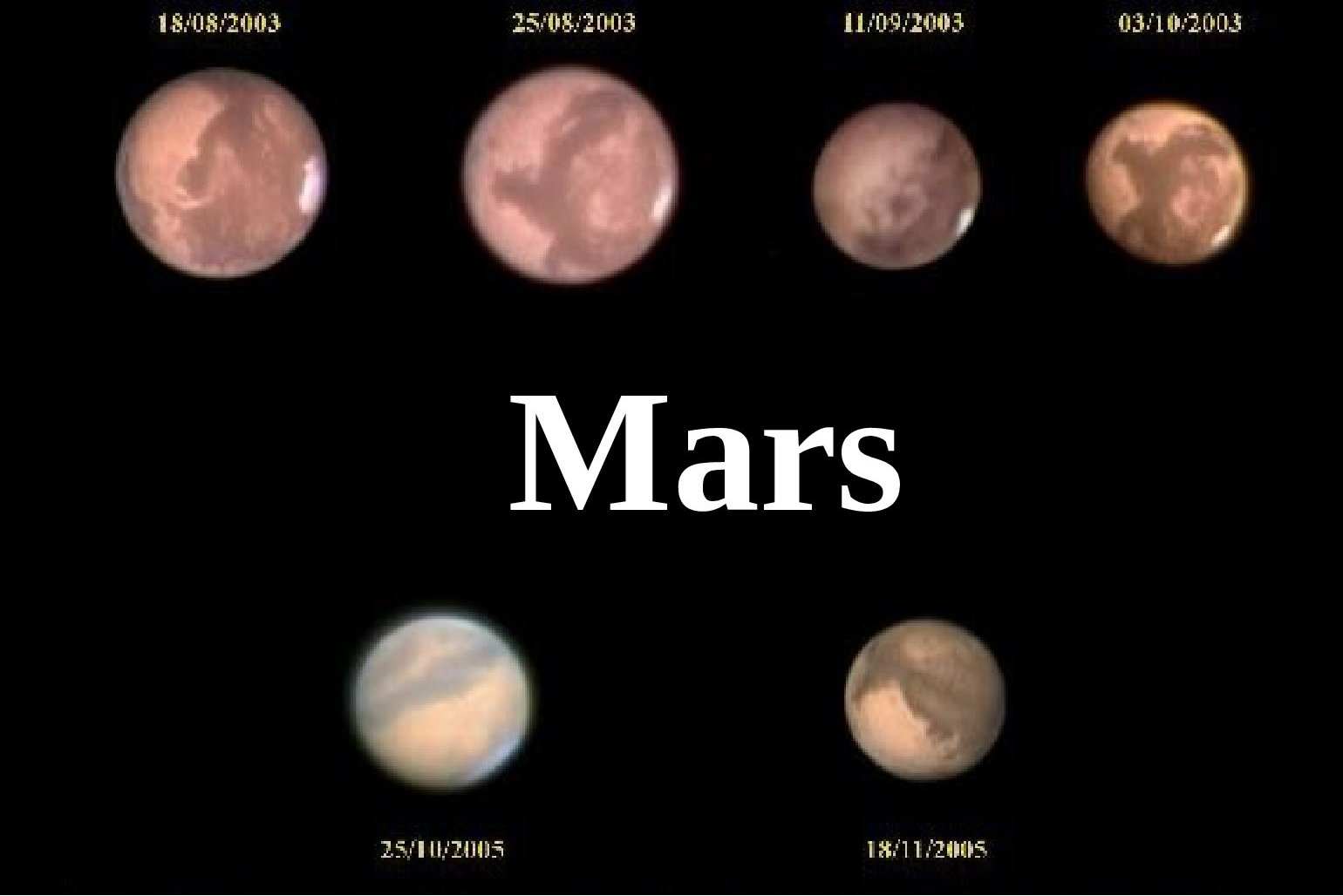
Mars seen from the Planet Earth.
On this picture, all photos of the planet Mars are on the same scale, this is the distance Earth-Mars that varies.
Photos taken by : A.R.E.C.A
II. The Outer Planets
| Distance to the Sun |
Distant |
| Size |
Big |
| Composition |
Extern : Gaseous ; Outer layer of gaseous molecular hydrogen, coat of liquid metallic hydrogen
Intern : Fluid ; a pit of rocks and ices
|
| Temperature (°c) |
< at - 130° |
| Density (g.cm p3) |
~ 1
|
In the Outer planets, we have :
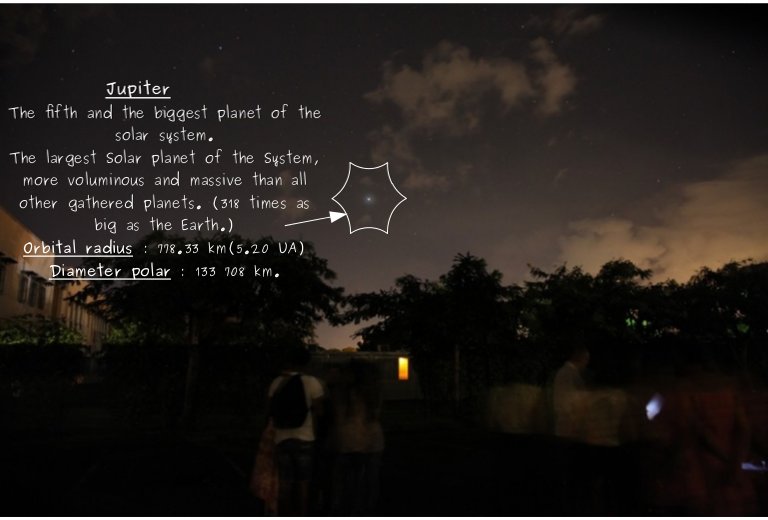
Jupiter seen from Reunion Island on the 12th of February circa17:41 GMT.
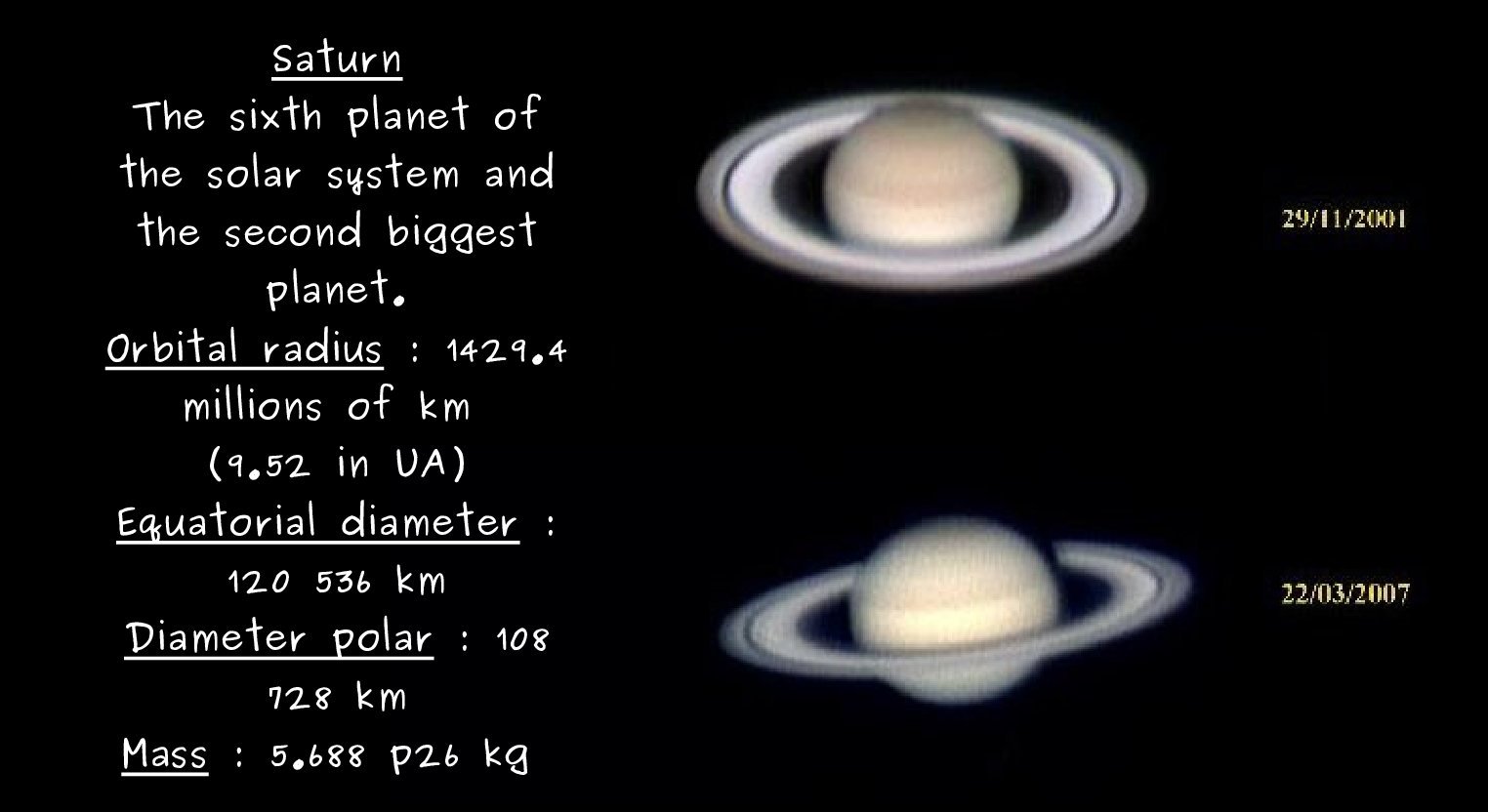
Saturn seen from the Earth.
Photo taken by : A.R.E.C.A
